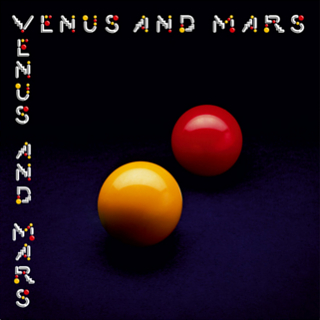Just some thoughts following a recent conversation I had. Don't we always want static types? If we can detect errors in our program, why not do it as early as possible? Sure. So when is "as early as possible"? I think the answer depends on what our program is - is it one monolithic piece or a component?
In the past monolithic software was prevalent, but today I would bet that most software is meant to be a component. Just look at open-source as it used to be before Java - you'd usually download the C source-code, change it if you need, build it all on your machine, and create one big executable. (And BTW - congratulations, you are a geek.) Cross platform Java changed the situation. Now open-source projects give you a jar to download, you put it on your classpath and you are ready to go. This lowered the bar for open-source adoption, and contributed (aside less restrictive licenses and other factors) to baby-boom of open-source frameworks and tools. Nowadays a Java developer cannot even imagine having no 3rd party jars in the classpath!
Static type check validates our software component against other components in the
compilation environment. Does it match the
runtime environment? What about different configurations of the runtime environment - there are tests and real deployments, and various types of deployments, and any given installation environment can change over time - new components being added, other updated or removed? How do we guarantee that compile time checks still hold? The short answer is - we can't. We need dynamic type safety anyway. Now let's examine the added value and the price (yes, there is one!) of deeply static types.
On code organization level, we try to reduce the dependencies to bare minimum - hide classes behind interfaces that we hope will remain more stable. The problem is that number of interfaces and factories in our application grows, while pursuing modularity we sacrifice simplicity... So maybe the problem is in the name?
Some go as far as add support for
structural types,
minimizing dependency to a single field/method signature (
not a problem-free solution, but there are
interesting refinements). All this may help, but doesn't really solve the problem.
Another aspect we need to deal with is building and packaging the software. Here we enter the world of dependency management, the world of "make", Ant, Maven, repositories, jar versions; if it's a large enough and complex enough software we work on, simply speaking - we enter the world of pain. I still find it strange that we haven't found a better way.
As for application deployment and its problems, we'll get back to it later. But the truth is that no matter how hard we try, we can't guarantee there will be no errors when we deploy our software, so ... JVM doesn't trust us and gives us
verification.
Simply put, when class is compiled, some of its requirements from other classes are captured and encoded into the bytecode. Then JVM would check them when the class is loaded, and reject the class if they can't be met. (This is really an over-simplified description of a complex algorithm, which also takes time to execute, despite
optimization efforts on JVM side.) So this isn't really a dynamic check, it's something in between - names in our class get linked when it is loaded. In the classic Java SE class-loading scheme, where components are basically a chain, this scheme should work. But if we want real components, ones we can add, override, replace or remove while program is running - sweet turns sour. Our interfaces and factories have names, and classes that represent them need to reside in some "common vocabulary" usually loaded by the parent classloader, because it's not only the class bytecode that matters, but also
who loaded what. Since we are talking actual classes, not their names, once we loaded two components, they cannot change their protocol of communication without reloading their parent, they also can't use a different version of a sub-component that the parent component has referenced.
In JEE that sort of things is necessary, that's why classloading in JEE is a terrible mess, not only it does not follow any specification, but it is different in almost each and every app server (wasn't there supposed to be portability?!) If you ever used
commons-logging in a JEE app, you probably
know what I mean. Maybe it got fixed lately, I don't know, but the
Tech Guide for commons-logging is an ode to classloader frustration.
Back to deployment: whenever there are some sort of dynamic components - JEE, Spring or OSGi, there is always reflection. And most of the time there's lots of XML too. It's an escape route from static types. I attended
Alef Arendsen's session at JavaEdge that presented OSGi and SpringSource. I carefully watched Alef juggle between XML, source and console like a child who watches a circus magician trying to uncover his tricks. But I didn't quite figure out the magic. And that was a whole session just for HelloWorld. I know Spring folks are doing best they can, and they're smart and all... but comparing to Smalltalk, I wasn't quite impressed. As for other solutions, although I haven't tried this out, there's
Guice/OSGi integration without XML and with dynamic proxies and on-the-fly bytecode generation with ASM, but there's some overhead for the user, because it requires intermediate objects for services. So this way or the other, looks like JVM platform is holding us back.
Verification is addition, not replacement of dynamic checks. So what we get is basically a triple check of correctness (javac, verifier, dynamic) but loss of flexibility - we are interfering with components runtime life-cycles. If the invocation target is resolved just in time when the call is made, nothing precludes the target component from being reloaded between calls. But with preemptive validation, we get a static dependency tree at runtime, classes wired with each other "too early" and for good, which makes reloading a component very hard (although people
keep trying). The reason for "early linking" is also performance, but late binding doesn't mean that the runtime platform can't do any optimization heuristics... but they'll have to be dynamic optimizations in the style of JIT. Will
invokedynamic bring the salvation?
It seems when we are talking about multiple components, "statically typed platform" does not quite do the job. Static type check may mean a lot inside a component, but as for inter-component communication they are not only useless, but harmful. People sometimes dismiss dynamic types, because they think "it's like static types, but without static types". What they may not realize is that you are not just loosing, you are gaining something with dynamic types. You get
late binding and
meta-programming, and in a multi-component environment, it means a whole lot!
And that's when we are talking "inside the platform" components developed in the same language. Once you work with a system that runs on a different platform or developed in a different language - our type system doesn't normally stretch across the communication boundary. The other system may not even have static types, and since we are only as strong as the weakest link, our static types don't really help us. I think every time we try to encode types into communication between systems we end up with a monster like CORBA or Web Services. But there's another (unfortunately popular) extreme of just sending a string over and hoping for the best - with no checking on our side at all. Then we are relying on the other system to stop us from doing damage, and there's no way to correctly blame the component that made an error - was it a wrong string or an unexpected change on the other side? I think that ideally type or contract checking and conversions can be done dynamically on both sides, and not as part of the protocol. This results in light and flexible data-exchanging protocols (like HTTP or ATOM) which are easier to work with and I think will win in the end. On the more theoretical level I like
this model for intercommunication and of course there are
Aliens, that model external system as a special object in our system.
So as far as I see - components simply require a dynamic environment, they may be statically checked inside, but act as "dynamic" to the outside world. Sort of hard skeleton and soft shell. Indeed soft parts are much easier to fit together and less breakable, due to flexibility - this is used often in mechanical engineering and in nature, so
why not in software?













